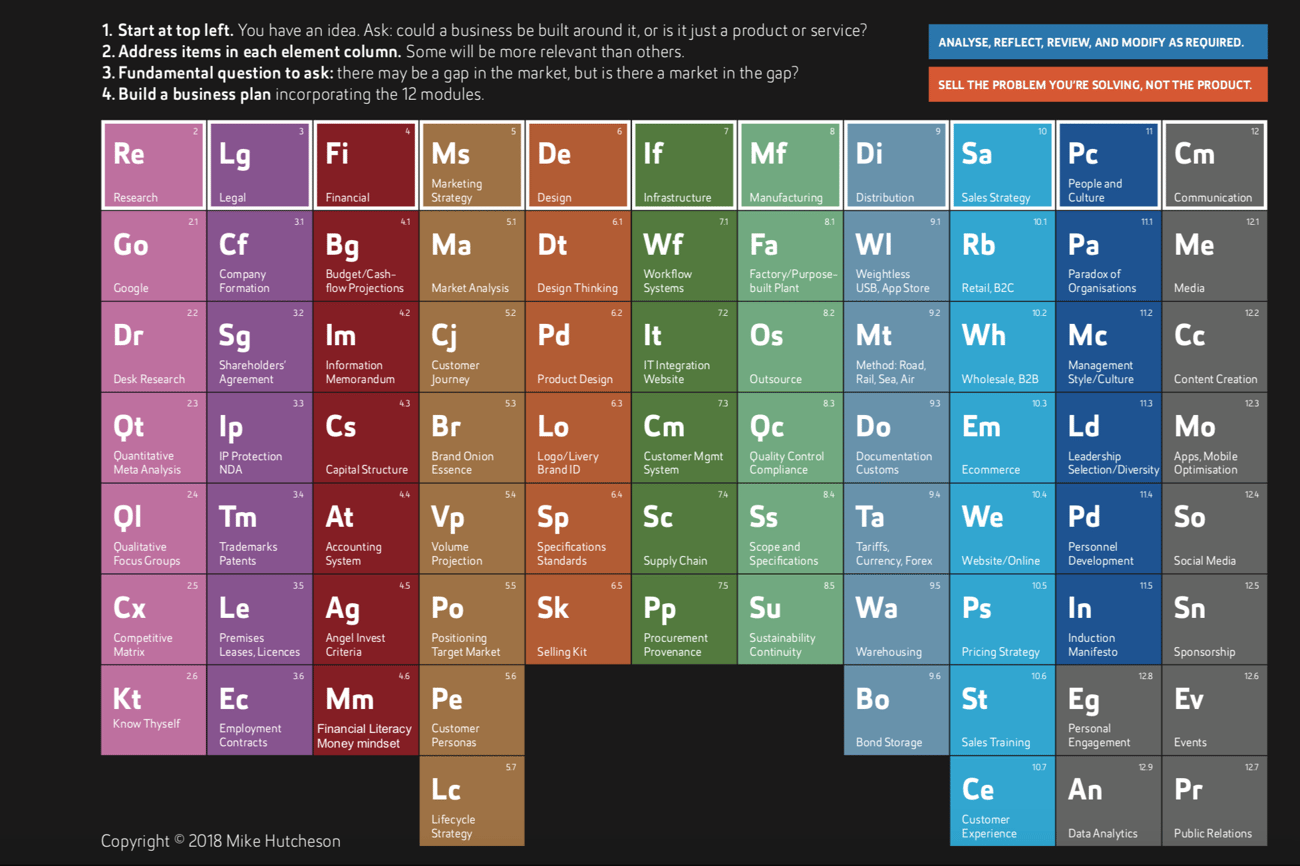How to commercialise your creative idea with Mike Hutcheson

Creativity is a nuanced term to try define, as it isn’t something that can be learned from a textbook. Hutcheson says it’s hard to nail down to one definition, but one way to describe it is: “seeing what everyone else has seen and thinking what no one else has thought”.
Creativity comprises three essential elements, he says: originality, utility and a tangible product that is recognised by others. The utility can also be on a spectrum, ranging from a useful device, to a work of art.
“All creative activities reside somewhere on a continuum that ranges from bricklaying, through painting the Sistine Chapel ceiling, to discovering gravity,” Hutcheson says.
We asked Hutcheson for his tips on commercialising creativity, given he’s somewhat of an expert in this area (he recently did a Masters in Philosophy thesis that looked at the role of creativity in New Zealand businesses).
Originality is rare.
Hutch says there’s no point in straining to come up with a creative idea that’s completely unique, as the chances of you doing something that no one else has done (or something similar to it) are pretty much zero.
“The best way to be successful is to develop something that’s already there, but to do it better,” he says. “In a crowded market, you’ve always got a chance of success if you do it better or differently in a way that’s appealing.”
Take Peter Cullinane’s company, Lewis Road Creamery. New Zealand is highly experienced in creating dairy products, but a premium milk or butter product was a different story.
“For creative people, you’ve got to understand, how do you look at the same thing differently?” Hutcheson says. “Don’t try do anything totally new, it’ll just cost you too much. You’ve got to do something that people want, but better.”
Is there a market in the gap?
If the creative idea you’ve come up with entirely unique, then sometimes, it might be best to stay that way. Hutcheson says entrepreneurs often stop and ask whether there’s a gap in the market, but not whether there’s a market in the gap – and some ideas are just too niche.
He gives the example of someone who approached him with an idea for a motorised pogo stick – which would be dangerous – or a vegetarian nightclub, which would only be relevant to about five to 10 percent of the population.
“There needs to be a methodology for validating ideas, which is why I came up with a practical innovation process,” he says, referring to the periodic table of innovation.
“It’s about taking an original idea, making sure it’s useful to enough people to be an appealing business proposition, and then putting it through a validation process.”
Timing is everything.
On the other hand, sometimes there can be nothing wrong with a creative idea, except that it’s just that it’s too far ahead of its time.
“If you’re 10 years ahead of the market, you’re a philosopher, if you’re two years ahead, you’re a visionary, if you’re two months ahead, you’re a millionaire,” Hutcheson says.
“So you’ve got to be in the right place at the right time – timing is everything.”
A good example of this is although the first actual helicopter wasn’t built until the 1940s, it is believed that Leonardo da Vinci’s sketches from the late fifteenth century of a ‘screw-like machine’ were the predecessor to the modern day flying machine – he just couldn’t figure out how the propellers could rotate fast enough to take flight.
Don’t fall in love with your own ideas.
On that note, Hutcheson says it’s important to have a healthy detachment to a creative idea, so you don’t get caught up in how amazing it is and refuse other people’s help or feedback.
“Don’t fall in love with your own ideas, and don’t try hog it all to yourself. A lot of creative people are egocentric and think all it needs for development is them,” he says.
“The person who started the business is unlikely to be the person that grows it, so know how to surround yourself with the right people and know when to step aside.”





